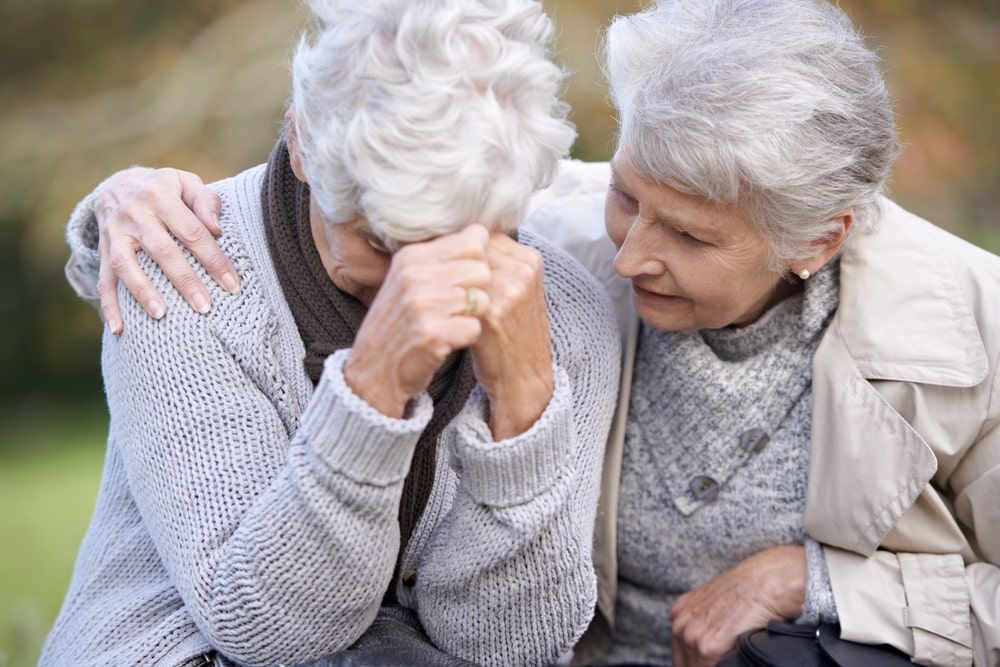Perhaps your loved one’s journey with hospice has been long and difficult. Maybe it’s been so quick you’ve barely had time to process what is happening. Whatever the case, grief has been present, whether you are anticipating a loss or just trying to make it through day by day. While every grief journey is different, we can all learn from each other’s stories. Take a moment to review this list of 10 books on grief and see if any of them may be able to help you as you begin your journey through grief.
10 of the Best Books on Grief
1. Resilient Grieving: Finding Strength and Embracing Life After a Loss That Changes Everything (Lucy Hone, Ph.D.)
Written by psychologist and resilience/well-being expert Lucy Hone, this book explores humanity’s resilience and ability to grow even in the face of traumatic loss. Hone began her own resilient grieving journey after the loss of her 12-year-old daughter, and in her own words, “This book aims to help you relearn your world…to help you navigate the grieving process as best you can – without hiding from your feelings or denying the reality, or significance, of your loss.”
2. A Grief Observed (C.S. Lewis)
C.S. Lewis is considered an intellectual giant of the twentieth century and one of its most influential writers. Widely known for his classic children’s series The Chronicles of Narnia, he is also the author of many theological works. Written following the death of his wife to cancer, A Grief Observed is an honest record of a man who has lost his beloved and must wrestle with life, death, and faith. You will find his words relatable and real – reflecting the honest struggle we each face in grief.
3. More Beautiful Than Before: How Suffering Transforms Us (Steve Leder)
“Pain cracks us open. It breaks us. But in the breaking, there is a new kind of wholeness.” With these words, Rabbi Steve Leder, leader of Wilshire Boulevard Temple in Los Angeles, lays out the essence of his book. It is the suffering, the breaking, that occurs during times of grief that leads us to live more meaningful lives. He outlines three stages of pain – surviving, healing, and growing – which lead us to find meaning in our suffering and new hope for a life that is more beautiful than before.
4. Healing After Loss: Daily Meditations for Working Through Grief (Martha Whitmore Hickman)
Offering daily meditations for those who are grieving, this book has offered comfort since 1994 and continues to be a sought-after classic. Each daily meditation is brief but powerful, intended to bring comfort and encouragement to any reader. Drawing on her own experiences of grief, Hickman creates a book that is relevant to all, no matter the loss or the year. With more than 1,300 5-star ratings on Amazon, this one is worth a look.
5. It’s OK That You’re NOT OK: Meeting Grief and Loss in a Culture That Doesn’t Understand (Megan Devine)
The basic premise of the book is this: there is nothing wrong with grief. As Devine puts it, “Grief is simply love in its most wild and painful form. It is a natural and sane response to loss.” Using her own loss as an example, she talks about how difficult it is to grieve in our current culture and the importance of building our lives alongside our grief – learning how to reconcile our lives to it – rather than seeking to “get over” or overcome it.
6. Understanding Your Grief: Ten Essential Touchstones for Finding Hope and Healing Your Heart (Dr. Alan Wolfelt)
Dr. Alan Wolfelt, respected grief counselor and director of the Center for Loss and Life Transition, packs a lot of helpful information into this relatively short read. He discusses the difference between grief and mourning, the factors that make each person’s grief unique, and the need for mourners to treat themselves with compassion. In addition to a wide range of information, the book also includes journaling sections to allow you to engage and write down your own thoughts and feelings.
7. Chicken Soup for the Soul: Grieving and Recovery (Jack Canfield, Mark Victor Hansen, and Amy Newmark)
Filled with the stories of other grievers, this book is both inspirational and comforting. As you read through the stories, it’s easy to see that every grief journey is different and every loss unique. Through the poignant and relatable stories shared, you will find yourself appreciating life and receiving strength and support from the lives of others.
8. Life After Loss: A Practical Guide to Renewing Your Life After Experiencing Major Loss (Bob Deits)
Drawing on more than thirty years of experience in helping people cope with major loss, Bob Diets provides practical help with navigating the unknowns of grief and helps you find a different, but no less meaningful, life following a loss. Filled with compassionate insight, Life After Loss is considered “one of the classics” (Dr. Earl Grollman) and a “roadmap for those in grief” (Lawrence J. Lincoln, MD).
9. Safe Passage: Words to Help the Grieving (Molly Fumia)
Written by a grief expert and grieving mother, Safe Passage gently and lovingly guides you through the stages of grief and toward hope and healing. In her own words, Molly Fumia says, “On the path toward healing, I learned two surprising lessons. The first is that grief is the most patient and persistent of all of life’s companions. The second is that grief is an ancient, universal power that links all human beings together.” In Fumia, you will find a compassionate and steady friend.
10. Living When a Loved One Has Died (Earl A. Grollman)
In the pages of this book, Earl A. Grollman, an internationally recognized bereavement counselor, explores the various emotions associated with mourning, the pitfalls to avoid, and how to process and work through the complex emotions of grief. Grollman gently guides the reader through learning how to heal in their own way because we each grieve differently. No two people grieve in the same way, so now two grief journeys will look the same. Find comfort and learn how to move forward.
In these books, you will find a fount of wisdom, compassion, guidance, and information. Whether you need the information now or later, remember that there are those out there who have experienced something similar to you, and you can find courage in their stories.









